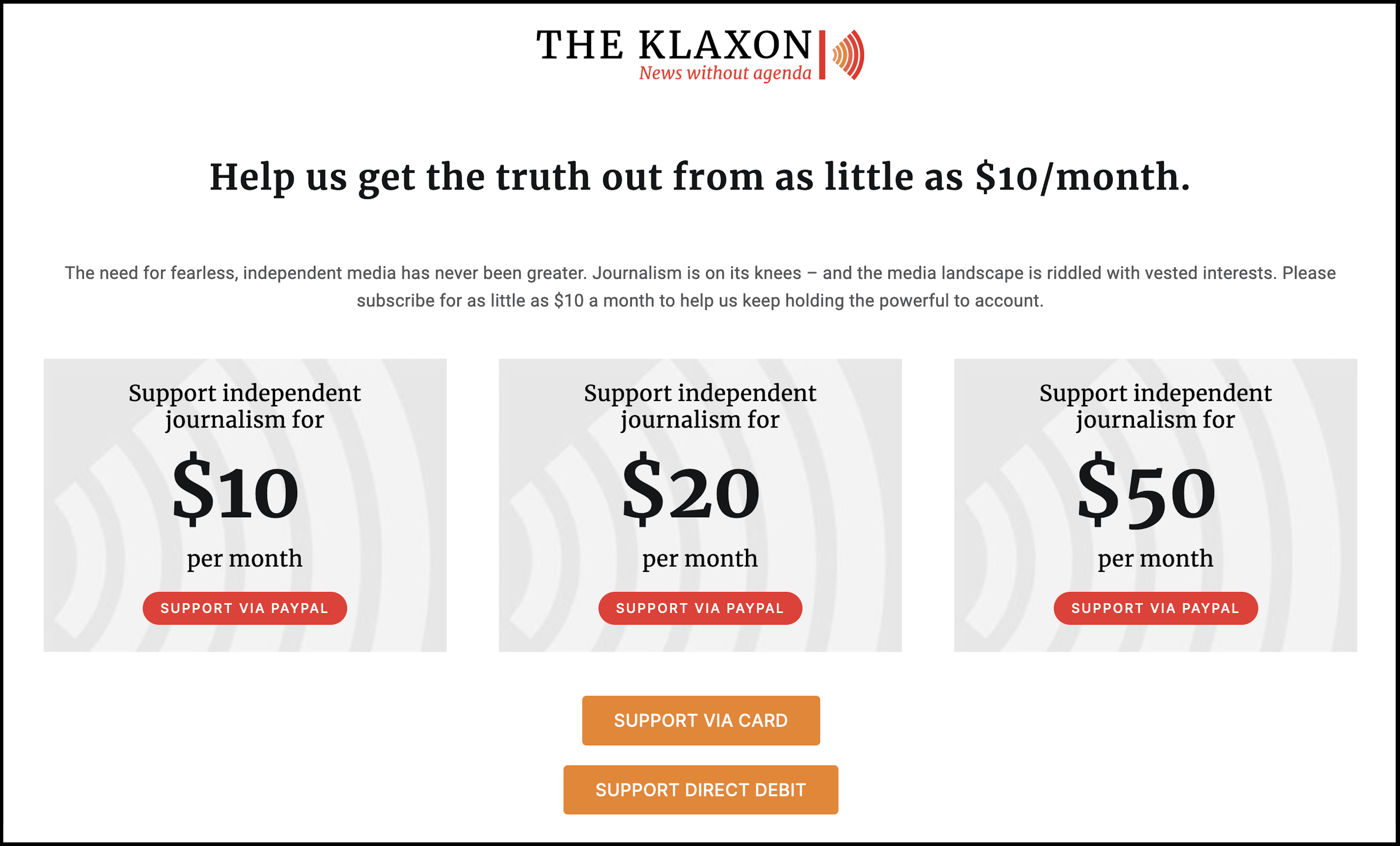SUPPORT
Disgraced consultancy PwC and its offshoot Scyne Advisory are currently undertaking 46 Federal Government contracts valued at $138 million, it has been revealed.
In the wake of the tax leaks scandal PwC Australia sold its “government consultancy” business — comprised of 1,400 PwC Australia partners and staff — for the nominal sum of $1 to private equity group Allegro Funds, which renamed it Scyne Advisory.
Figures provided by the Department of Finance in response to questions from the Senate inquiry into consultancies show Scyne has been transferred at least $111m in existing Federal Government PwC contracts, as well as given new Federal contracts worth $14.4m.
The figures further reveal PwC Australia itself has ten “active contracts” with the Federal Government, totalling $12.6m, including an $11.3m contract with the Australian National Audit Office (ANAO).
Between them, PwC and Scyne have current Federal Government contracts valued at $138m.
Yet Finance, which is responsible for overseeing all Commonwealth procurement, has failed to comply with the Senate inquiry’s request that it provide details of “all current Commonwealth contracts” with PwC and Scyne.
Instead, “Finance” (no name is provided in the response) has only provided the PwC and Scyne contracts that have been published on government tender registry AusTender.
That means the actual value of current contracts between the Federal Government and PwC (and Scyne) is likely much higher than reported.
It can also be revealed:
— Finance has distanced itself from a so-called “effective ban” on PwC last year
— The PwC “ban” announced last month doesn’t apply to dozens of Federal entities
— Finance has met with PwC Australia officials 16 times in just the past 12 months
In January last year it was revealed PwC Australia took confidential government tax policy data — while providing advice on stopping multinationals avoiding Australian tax — and used it to help multinationals avoid Australian tax.
It is one of the biggest corporate scandals in Australian history. Amid fierce public outrage, on May 19 last year Finance released a “procurement policy note” which was widely reported as an “effective ban” on PwC Australia.
That note was a “reminder” warning Federal agencies that in issuing contracts they must (Finance’s emphasis) “consider any unethical behaviour” including failure to abide by “confidentiality provisions”.
“This procurement policy note is to remind entities that the Commonwealth Procurement Rules (CPRs) states that officials must consider, among other things, a potential supplier’s relevant experience and performance history when assessing value for money,” it said.
“This could include consideration of any unethical behaviour and/or deficiencies in performance under prior contracts (including failure of the tenderer to abide by substantive requirements such as confidentiality provisions)”.
Finance has now said: “The reminder was in relation to all suppliers and potential suppliers to the Commonwealth, and did not specifically mention any supplier”.
Please support our quality journalism by CLICKING HERE

Finance has quietly greenlit “PwC Indigenous”, paving the way for millions to flow to PwC’s partners. Source: The Klaxon
On May 2 The Klaxon and Crikey exclusively revealed Finance had on April 30 quietly issued another “procurement policy note” to Federal agencies.
The next day Senate inquiry member and Greens Senator Barbara Pocock sent the Department of Finance a series of questions, which Finance has now responded to.
In its shock April 30 procurement policy note, Finance names PwC for the first time — but it is in the context of once again allowing PwC to be given Federal contracts, and as soon as December 1.
In the shock procurement policy note Finance said it had signed a “mutual agreement” with PwC that PwC wouldn’t bid for any new Commonwealth work “until at least 1 December 2024”.
“PwC Australia has agreed with the Commonwealth that it will temporarily cease new contract engagements with Australian Government entities captured by the Commonwealth Procurement Rules until 1 December 2024,” it states.
It makes no mention of why any “agreement” with PwC was required.
The revelations are remarkable because it was widely considered PwC would no longer be given Federal contracts — the stated reason for the “divestment” of its “government business” to Allegro.
That deal was finalised in November last year, after Finance greenlit Scyne to receive Federal contracts.

Finance officials have met with PwC 16 times in just the past 12 months. Source: Australian Senate
In many cases Finance has provided vague, misleading, or incomplete answers or dodged the questions entirely.
It has also provided near identical cut-and-paste responses to multiple questions.
Finance’s responses reveal PwC’s “ban” last month — announced over a year after the tax leaks scandal broke — doesn’t apply to “Corporate Commonwealth entities” (with some exceptions) or to “Commonwealth companies”.
Finance’s April 30 PwC ban states it applies to Federal Government entities “captured by Commonwealth Procurement Rules (CPRs)”.
Yet Pocock noted those rules do not apply to 48 of 72 corporate Commonwealth entities.
“Does this mutual agreement cover all Commonwealth entities, including those not subject to the CPRs?” Pocock wrote.
Finance responded: “Corporate Commonwealth entities [other than those prescribed in section 30 of the Public Governance, Performance and Accountability Rule 2014] and Commonwealth companies are not subject to the Commonwealth Procurement Rules and are therefore not captured by the procurement policy note”.

Finance greenlit PwC Indigenous days before the Senate inquiry’s explosive second report. Source: The Klaxon
The figures provided by Finance show 23 Federal contracts with PwC, totalling $111m, have been transferred to Scyne.
They include five contracts from the Department of Defence worth almost exactly $40m.
Scyne has been given a further 13 new Federal contracts totalling $14.4m, the figures show.
Those include four new contracts from Defence totalling $7.2m and three new contracts from the Department of Health and Aged Care totalling $1.53m.
A criminal investigation into PwC Australia by the Australian Federal Police remains ongoing, as does a string of investigations by the government’s Tax Practitioners Board, as well as investigations by US authorities.
On March 27 the Senate inquiry into consultancies published a second interim report on PwC, titled “PwC: The Cover-up Worsens the Crime”.
The inquiry, comprised of members of all major Australian political parties, found PwC had failed to “genuinely change”, was engaged in an ongoing “cover-up”, and made “no genuine effort to fully investigate and address the issues”.
The Senate inquiry is due to release its final report Friday.
Pocock asked Finance why it had made an agreement with PwC before the Senate inquiry had released its “final report and recommendations?”
Pocock also asked Finance why it had made the agreement with PwC “despite the damning, unanimous interim report ‘PwC: The Cover-up worsens the Crime’ having found that PwC Australia has failed to genuinely change?”
In both cases Finance responded stating its agreement with PwC had been “reached because the Finance examination of PwC Australia’s ethical soundness is ongoing”.
Finance’s “examination of PwC Australia’s ethical soundness” has been ongoing since Finance started it.
Finance has not explained why it named PwC for the first time on April 30, over 15 months after the tax scandal broke.
It has also failed to adequately explain why it has entered into an “agreement” with PwC at all.
Pocock asked whether Finance would “consider giving consulting work to PwC Australia from 1 December 2024”, and if so “what kinds of work… for example: audit, assurance?”
Finance dodged the questions, providing the same response to both:
“The Department of Finance’s examination of PWC Australia’s ethical soundness is ongoing. The examination will advise on arrangements for future engagement with PwC Australia from 1 December 2024,” it writes.
The Department of Finance is run by Secretary Jenny Wilkinson, who receives an annual taxpayer salary of $765,916.
DON’T CLICK AWAY: As you can see from the above, truly independent, quality journalism is vital to our democracy. Please SUPPORT US HERE.
Help us get the truth out from as little as $10/month.
Unleash the excitement of playing your favorite casino games from the comfort of your own home or on the go. With real money online casinos in South Africa, the possibilities are endless. Whether you’re into classic slots, progressive jackpots, or live dealer games, you’ll find it all at your fingertips. Join the millions of players enjoying the thrill of real money gambling and see if today is your lucky day!
The need for fearless, independent media has never been greater. Journalism is on its knees – and the media landscape is riddled with vested interests. Please consider subscribing for as little as $10 a month to help us keep holding the powerful to account.







